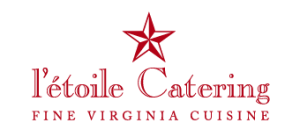More Breakfast History
Waking up hungry and driving to l’etoile this morning – out of nowhere came the idea to talk about breakfast. Glancing at the beauty around Charlottesville and central Virginia I thought I would share this history with you.
Breakfast, like most meals, is a moveable feast that depends upon cuisine, culture, and class. Food historians agree on these three points when it comes to breakfast:
- Most people, in most times (including today) were lucky to partake of this meal.
- For most people, in most times (including today) this meal was very simple.
- Breakfasts composed of multiple dishes are the privilege of the leisured wealthy.
Most people through time “broke their fast” with a warm drink (soup, tea) and a simple grain product (rice, oatmeal, bread). This combination stimulated the stomache, preparing it for the day’s meals. While many “traditional” [British, American] breakfasts items consumed today trace back to ancient times (eggs, sausage, pancakes, doughnuts/fritters), few people through time were fortunate enough to enjoy them as is customarily promoted today. “Traditional” British breakfasts marketed to today’s holiday celebrants and vacationers are typically reminiscent of wealthy-class Victorian fare. Brunch is closely related. Today few people partake of this traditional meal. Why? Time constraints and health concerns.
ABOUT AMERICAN BREAKFAST
The history of the American breakfast is a reflection of the history of our country. What people ate for breakfast, how much, and when evolved as our country progressed from native culture to agrarian society, through the industrial revolution and onto modern days. Most traditional American breakfast items were brought here by the people who settled our country. Historians confirm eggs (esp. omelets), sausage, and pancake-type foods have been enjoyed since Ancient Rome and Greece.
Breakfast also tells the story of social interaction and scientific advancement:
- colonists learned to incorporate “new world” foods into their diets (corn muffins, grits)
- immigrants brought traditional foods (kuchen, potato pancakes, doughnuts)
- pioneers learned to adapt their foods for wagon cooking (cowboy coffee, biscuits)
- 19th century food reformers advocated a healthy diet (corn flakes, granola)
- modern convenience (pop tarts, Egg McMuffins, frozen bagels)
- nutrition legislation (school breakfast programs)
- scientific advancement (instant oatmeal, cholesterol-free egg beaters, low-fat bacon)
- restaurant business (doughnut shops, 24 hour diners, elaborate Sunday brunches)
What time was breakfast? What was typically consumed at this meal throughout American history? This is a fascinating study. The answers depend upon who you were, where you lived, how much money you had, and what you did for a living. As a rule, the more money you had, the more you ate, the later you ate it, and the more time you spent around the table. Throughout our country’s history, it is not unusual for many hard workers to put in a couple of hours of work BEFORE breakfast.
“Even more elusive is the evidence for breakfast. Judging from cookbooks and dietary literature there was no such meal, or at least it was only recommended for children, invalids and the elderly who have weak digestive systems and must eat smaller meals more frequently. Nevertheless, there was such a meal, and some people took it regularly. The word itself comes from the late Latin disjejunare, meaning “to un-fast’ or break the fast of the evening. Remarkably, the word was contracted in the Romance languages to disnare or disnerin Olde French, or dinner in English. Thus the word dinner actually means breakfast. But the word is not recorded in English until 1463 in a royal account book that records expenses for breakfast, but it is not entirely clear whether this was an early dinner or another meal, the one we know know as breakfast, eaten first thing in the morning.”
—Food in Early Modern Europe, Ken Albala [Greenwood Press:Westport CT] 2003 (p. 232)
“Breakfast…Native American breakfast consisted of cornmeal mush and perhaps cornbread, both items the first European settlers adapted for their own breakfasts. The settlers also breakfasted on a quickly prepared porridge called “hasty pudding,” made with cornmeal and molasses. Later bread or toast and coffee or tea were the usual breakfast, while in the nineteenth century affluence brought more variety to the diet and larger portions of meats, fish, cheese, bread, jams, and often a tot of rum or cider. Also popular were pancakes, especially buckwheat pancakes, which were consumed in stacks with butter and molasses or maple syrup… In different parts of the United States different food items are served for breakfast, although a meals of eggs, bacon, toast, and coffee seem ubiquitious, with the addition in the South of grits, ham, or biscuits, in the West with chile peppers, and in the Northeast with sausages and hash-brown potatoes, and in urban restaurants with preparations of eggs benedict, finnan haddie, melon, french toast, caviar, waffles, Danish pastry, fruit, English muffins, and many other items In Jewish communities breakfast may consist of bagels and cream cheese. The popularity of breakfast cereals began in the middle of the nineteenth century and has continued since then, especially a children’s breakfast item.”
—Encyclopedia of American Food and Drink, John F. Mariani [Lebhar-Friedman:New York] 1999 (p. 41-2)
[NOTE: This book is an excellent resource for historic profiles of selected foods. Ask your librarian to help you find a copy]
Why do many Americans think of eggs & bacon as breakfast?
Excellent question! With no definitive answer. The American habit of breakfasting with eggs and pork products (bacon, sausage, Taylor Pork Roll) descends from British roots. General notes traditional English breakfasts here. Why eggs in the morning? Some hypothesize the practice descends from the days when many people had their own chickens, hense ready eggs supply. Eggs were harvested in the morning. The fresher the egg, the tastier it was. Immediate consumption might also been a a convenience to the cook: eggs eaten are eggs that do not need to be stored. And then, there’s the practical side. Eggs cook quickly.





